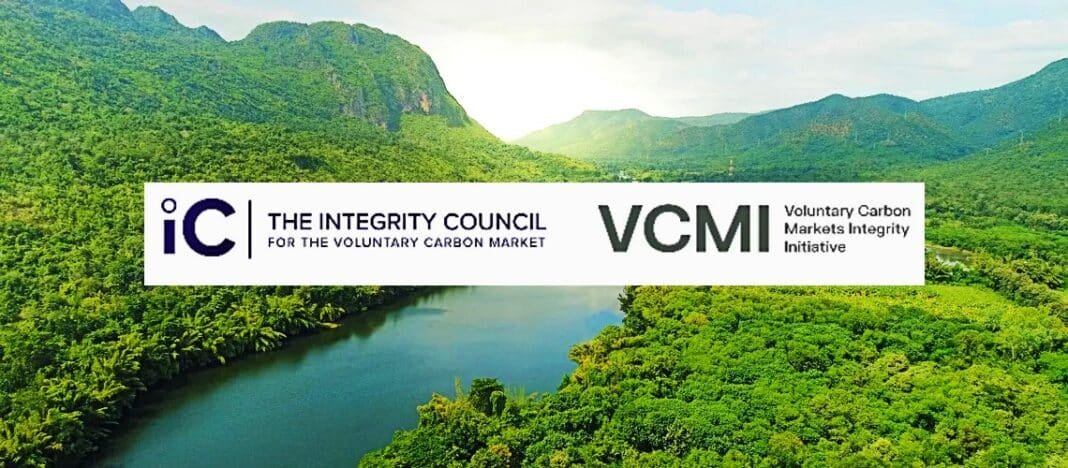The Integrity Council for the Voluntary Carbon Market (ICVCM) and the Voluntary Carbon Markets Integrity Initiative (VCMI) are synergistically joining forces. Their collaborative mission? To meticulously craft an innovative, unified market integrity framework.
This robust system is designed to build confidence among investors in the Voluntary Carbon Market (VCM), assuring them of the superior quality and high integrity of their carbon credits.
Their goal is to enable a high-integrity VCM that the private sector can invest in to complement their efforts in decarbonizing company operations and value chains.
Setting an Integrated Market Integrity Framework
The collaboration between VCMI and ICVCM is one of the many initiatives that set an integrated market integrity framework. Four crucial things are at stake: quality, credibility, transparency, and accountability across value chains.
Their joint commitment will define best practices and credibility in using and sourcing high-integrity carbon credits. VCMI’s Co-chair Rachel Kyte asserted the importance of this by saying:
“It is essential that companies have clarity and consistency in how they can credibly use high-quality carbon credits and how this fits into their broader decarbonization strategies.”
The two key stakeholders in the VCM target to release new standards and guidance in 2023 and beyond. These include the upcoming launch of VCMI’s Claims Code of Practice, which Kyte said is a big part of their collaboration. It is due to launch on June 28.
The ICVCM’s Core Carbon Principles (CCP) Category-level announcement is also due in the coming weeks. CCP was launched earlier this year and the first assessment decisions and labels for CCP-approved carbon credits will be released later this year.
The CCPs and Claims Code of Practice is global standards that create real, verifiable climate impacts in the VCM.
As the organizations operate these standards, they’ll continue to emphasize that investing in the VCM should supplement established best practices when it comes to creating climate strategies, accounting, and setting targets.
These standards and approaches include, in particular, the Greenhouse Gas Protocol, Science Based Targets Initiative (SBTi), and CDP’s reporting platform.
By combining their resources and expertise, the VCMI and ICVCM set the stage for a credible VCM with integrity framework. This is critical to build trust and confidence among market players and stakeholders namely, companies, governments, investors, and local communities.
How Can the Framework Help Companies in their Net Zero?
Science shows that investing in carbon credits can help ramp up efforts to prevent global warming from going above 1.5°C. But as long as companies use them as a supplement to their science-based internal decarbonization and net zero strategies.
More importantly, carbon credits can also unlock critical funds for climate solutions that wouldn’t otherwise be feasible.
ICVCM Board Chair, Annette Nazareth, commented on the partnership:
“We are joining forces to create a high-integrity VCM that delivers real impact at speed and scale. By building an effective, trusted market, we can unlock investment and exponentially increase the positive impact it creates.”
Giant tech companies like Microsoft, Meta, and Apple have been pouring millions of dollars in the VCM as one means to abate their emissions. They fund projects that either reduce or remove carbon dioxide from the atmosphere.
The integrated market integrity framework will help companies do their part in bringing the world to net zero emissions by highlighting these important aspects:
- Asserting that companies must give priority to their internal decarbonization efforts such as investing in clean energy technologies and processes.
- Defining the complementary role of high-integrity credits in a corporate climate strategy through guidelines that will continuously be improved.
- Enhancing commitment to quantified and verified carbon emissions reduction targets that align with the Paris Agreement goals.
- Promoting adherence to enhanced reporting requirements, disclosure mechanisms, and guidelines on the use of high-quality carbon credits toward net zero.
The announcement came ahead of the “Summit for a New Global Financial Pact” in Paris on June 22 and 23.

